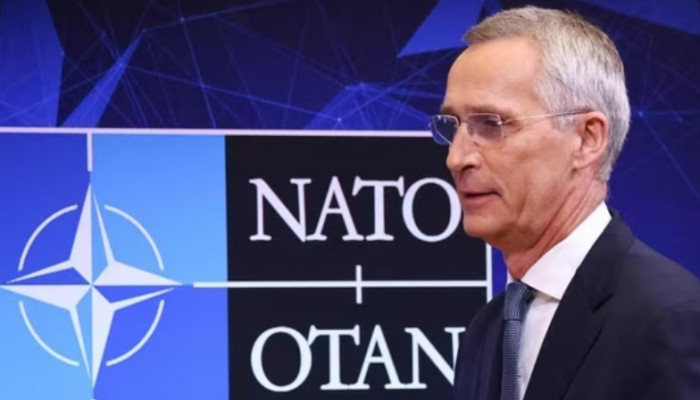NATO formally suspends cold war-era security treaty following Russia's withdrawal
- In Reports
- 06:51 PM, Nov 07, 2023
- Myind Staff
NATO has made a formal declaration of the suspension of a significant security treaty dating back to the Cold War era, following Russia's recent withdrawal from the same treaty. This announcement came shortly after Russia's decision to exit the agreement. Additionally, NATO member states who had originally endorsed the treaty have chosen to halt their participation in this accord.
The Treaty of Conventional Armed Forces in Europe, which the majority of NATO's 31 member nations have ratified, was established with the primary objective of preventing the massing of military forces by Cold War adversaries along or near their shared borders. The treaty was initially signed in November 1990 but did not receive full ratification until two years later. This move by NATO signifies a significant development in the evolving geopolitical landscape, as the alliance responds to Russia's actions in the context of this Cold War-era treaty.
NATO said its action was required because “a situation whereby Allied State Parties abide by the Treaty, while Russia does not, would be unsustainable.”
Moscow confirmed the completion of its withdrawal from the treaty, also known as CFE. This anticipated action followed the approval of a bill by both chambers of the Russian parliament, which had been proposed by President Vladimir Putin to denounce the CFE. President Putin signed this bill into law in May of this year.
The treaty in question represented one of several significant Cold War-era agreements involving Russia and the United States that have become non-binding in recent times. Russia initially suspended its participation in the treaty back in 2007, and in 2015, it declared its intention to fully withdraw from the accord. These developments mark a notable shift in the international landscape, impacting the standing agreements between these nations.
“We left the door open for a dialogue on ways to restore the viability of conventional arms control in Europe,” it said. “However, our opponents did not take advantage of this opportunity.”
The statement also mentioned that "even the formal preservation" of the treaty has become "unacceptable from the point of view of Russia's fundamental security interests," highlighting developments in Ukraine and NATO's recent expansion.
In Brussels, NATO stated that its allies who had signed on "intend to suspend the operation of the CFE Treaty for as long as necessary, in accordance with their rights under international law." The alliance emphasized that its members remain committed "to reduce military risk, and prevent misperceptions and conflicts."
NATO specified that its members will continue to "consult on and assess the implications of the current security environment and its impact on the security" of the alliance.
Image source: AP







Comments